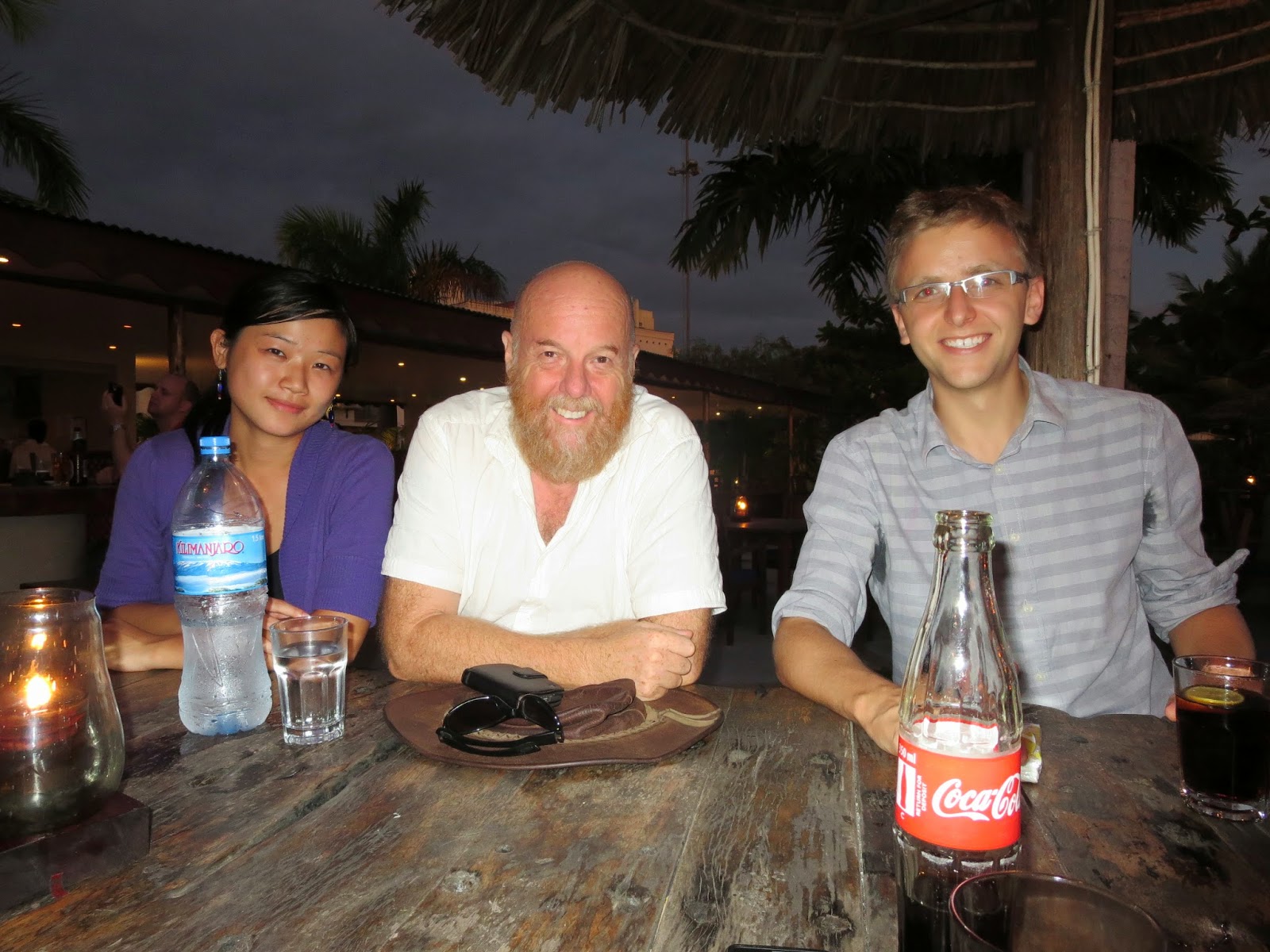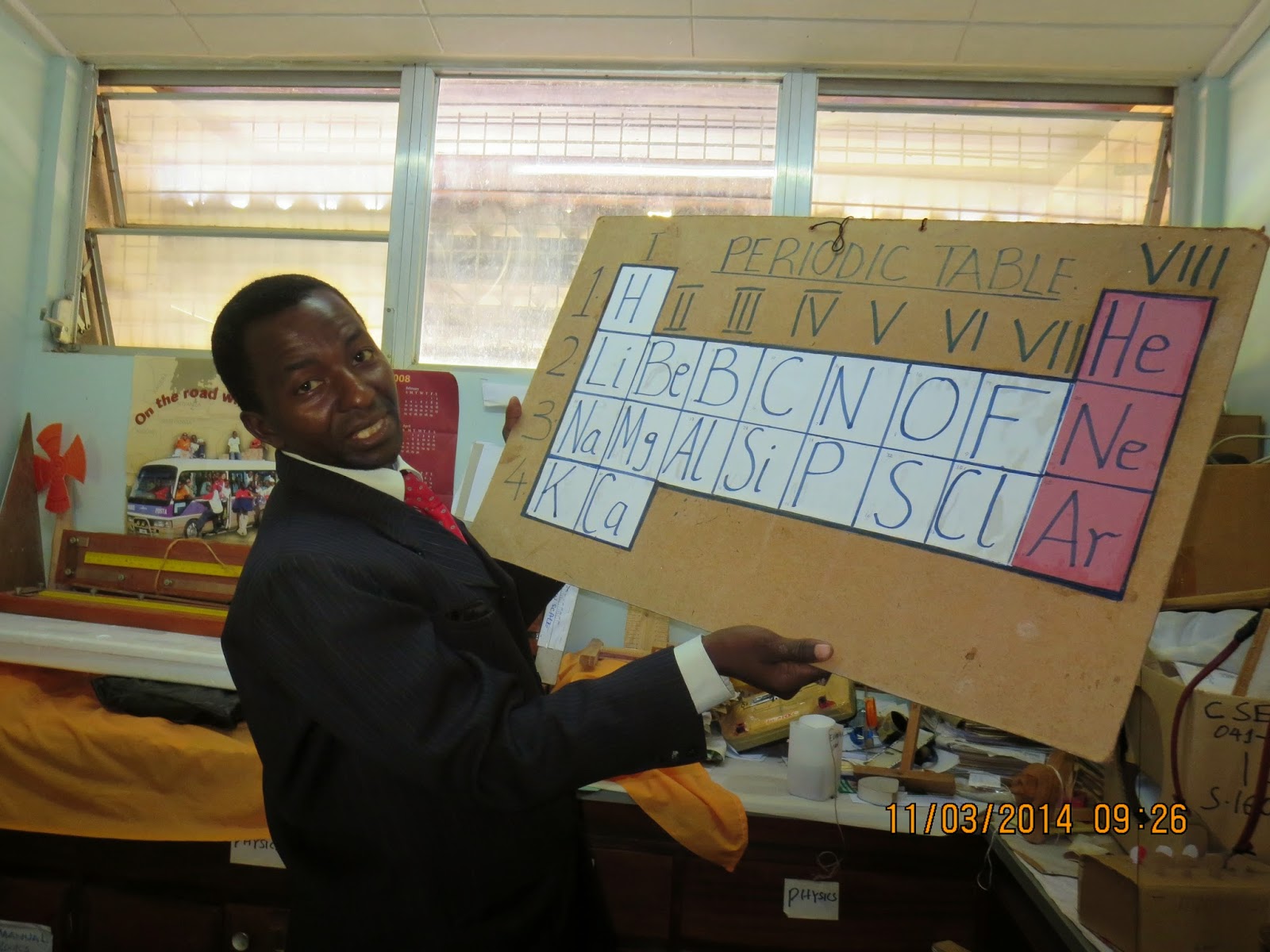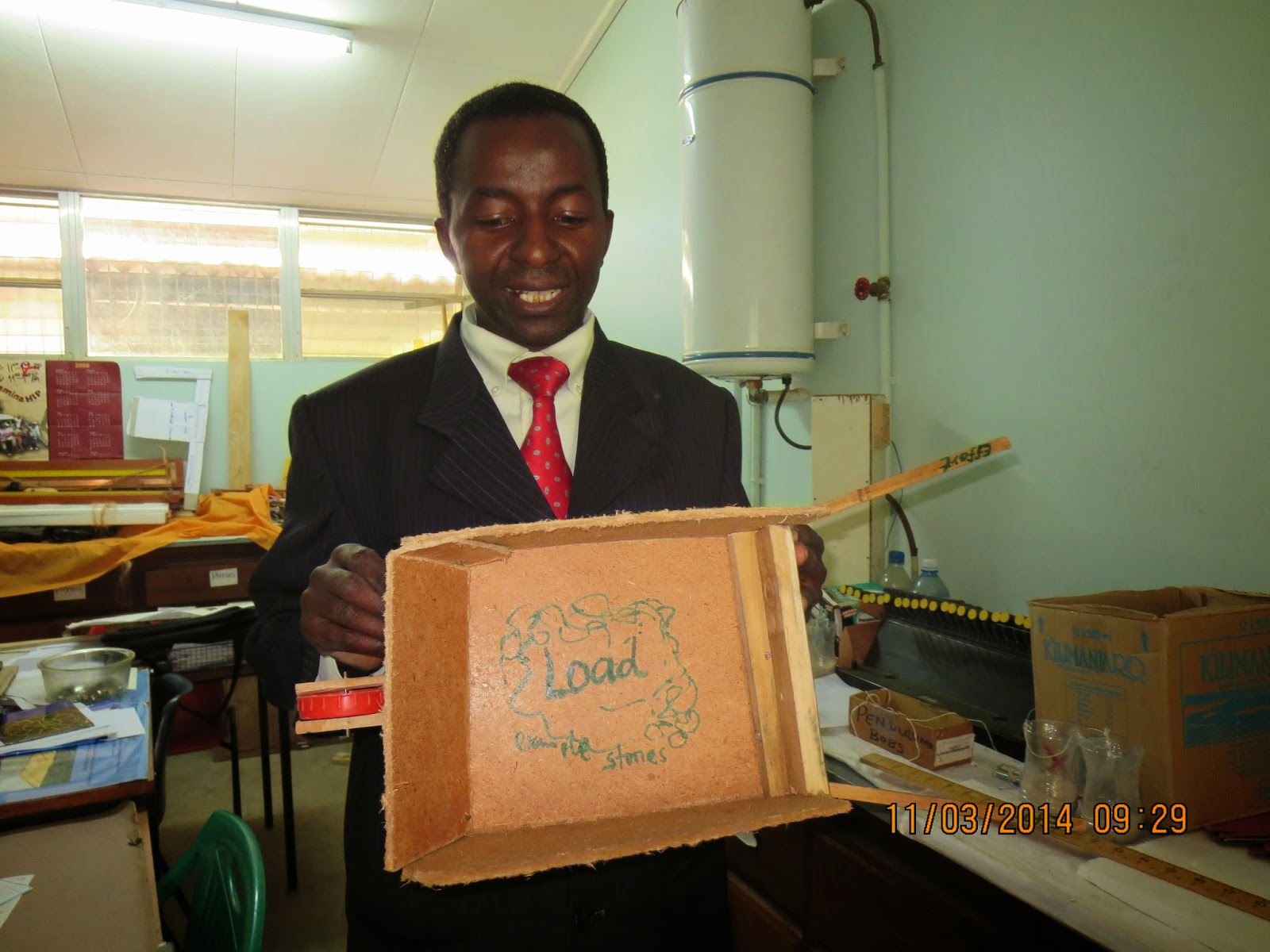Well, it's been six months since I came
back from Tanzania, and I'm pleased to say the experience is still with me. I
was worried coming back into the UK's pace of life that I would very quickly
forget the value of taking time to enjoy the little and the big things; forget
how difficult life can be for some people. After the world stopped spinning,
several weeks from getting back, I began to feel the need to question the
effectiveness of financial aid; to question their government; OUR government,
over how come people are still struggling to live a healthy life with limited
access to healthcare and education after 53 years of outside support.
How to make sure that if aid is given to a country, that it reaches everyone
who needs it; that all projects to attract funding are always realistically
designed and relevant to the locals, rather than appearing to help while making
life cushy for some and paying staff salaries which are high even compared to
Western standards whilst living in a LEDC. Something that would teach me how to
help those who address corruption, and encourage accountability and
transparency: issues not restricted to LEDCs, I know, but issues that affect
all of us wherever we are in the world, directly or indirectly; as recipients
of aid; as taxpayers; as members of society; as human beings. I still have
those questions and concerns, but I need to remember that I don't have to bear
it all on my shoulders. I feel like I need to say I haven't given up on you,
Tanzania, and that my experience there is not going to become an anecdote to
dust off and talk about years down the line, but will shape my next steps.
Any change of
career or step in a new direction requires training; studying; or an internship/work
experience. Of course in reality, the catch-22 of a lack of experience means I won't get an internship, or
work placement, at an organisation in a new field, where I will also get paid - I've just
volunteered for a year (more like 2 when you consider the time used at each
end) and can't now afford to keep doing it for work experience. I don't have
money for the tuition fees of a Masters', let alone for the accommodation, books and associated costs, so it's not something I can just go and sign up for because I want a change. Since
looking at different possibilities, it seems like a loan that you can get is
not like for the Bachelor's degree (or how it used to be) where you borrow the
amount to cover fees and start repaying once you're earning a certain threshold
- it appears to be like a regular bank loan, albeit at a low-ish interest rate,
but which you have to start repaying pretty imminently at the end of your
course. And if you want to keep studying and change the Masters' to a PhD, the
loan still needs repaying as well as a new one taking out. Afterwards, of
course there are no guarantees I could get a job working for an influential
organisation or for the government anyway. So what else?
I considered
(and started applying for) a job in Malaysia, I contemplated re-volunteering in
Papua New Guinea or Cambodia, and I thought about going to teach in China.
Whilst these would be interesting, and potentially, with the first and last,
enable me to save (very, very gradually!) towards university fees, none of them
would be of much direct help if I want to change career direction towards
something like advocacy and governance. The good news is I've got a job back
down in London. I didn't think I would want to go back to the concrete jungle,
but since July I have ended up going there on average once a month and enjoying
it. And at least I'll be staying in the same country as most of my family so
I'll see them a bit more, hopefully. The flipside is that I am now making some
really nice friendships 'up north' where my dad lives, having been staying with
him while I ruminate on ideas for world peace ;-)
More good news
about the job is that it's only two and a half days a week, so maybe I can work
and do a Masters' part time - I can at least have time to try other things. Financially it will feel like I'm volunteering
again, but it certainly opens up a few possibilities without leaving me flat
broke or, worse, in major debt. Working whilst doing a Masters' is something I
considered for all of about 5 seconds when I was teaching - there's no way I
would want to devote the energy needed for both, and my hat goes off to anyone
who has managed/is managing it. I know it would do me in! I struggled with the
whole 'work-life balance' when I was 'just' teaching...
Either way,
whatever I end up doing, it's been so helpful to have this quiet time since
getting back to the UK to just readjust, and to contemplate. To look down
different avenues and think about what I want to do. I knew I didn't want to
return to mainstream teaching full-time (see above!) and get back into the rut
of living to work to pay the rent to go to work to pay the bills... I did very
much enjoy teaching, but that's a tough gig. I know I'm in a fortunate
position where I haven't had to make immediate decisions on where to live and
what job to do, and I've had a room to escape to when the incessant advertising
and focus on materialism got too much. The hardest thing to come back to in the UK was
with the pace of life, 'what are you going to do now?'
with the dizzying pace of life here and that it
can feel like a constant whirlwind. I do remember expressing a concern for adapting to a slower pace of life before
I left for Tanzania; that maybe I would not be able to resume to the faster pace when I got back,
having got used to a different dynamic. Well, the pace of where we were was
frustratingly slow (I know, hard to please!) - seriously, if you achieved one
thing a day, that was good - if the water bill needed paying, don't add anything
else to your day because chances are, paying the water bill will take most of
it. That did become difficult to get used to, but it was therapeutic; the fact
that it was the 'norm' took the pressure off, and after about six months, I had
adapted. I didn't necessarily like that aspect, but I didn't let it stress me
out if I hadn't also done several other things I had wanted to, and now I can wind the pace back up again. Ideally I
suppose it's a balance, like everything.
It doesn't
matter that I don't know what I'm going to do next in the 'long term'. It really
doesn't. I know what I enjoy doing; I'm trying new things; I have some ideas about what I'd like to do
next, and if they change, it's fine. This new job came along at the right time
offering me a culmination of good things. The best reminder for me during these
six months has been to take a breath; look around, and enjoy the moment. Please
take the time to do that for yourselves too. Enjoy life; explore it, try
something new, take a risk. Then when an opportunity comes along we're not so
busy that we miss, possibly, the moment we've been waiting for, even if we
didn't know it.
From one of the
books I've enjoyed reading recently:
“I want to shake
the millions of people who are sacrificing everything to attain a standard of
living at the expense of having a life. I want to reach out to the millions who
cram their lives and schedules until they are full, whilst they remain so
empty.”
Simon
Guillebaud, 'Dangerously Alive'.









+(2).JPG)



.JPG)
.JPG)
.JPG)
.JPG)
.JPG)












.JPG)
.JPG)
.JPG)
.JPG)
.JPG)
.JPG)
.JPG)
.JPG)
.JPG)
.JPG)
.JPG)
.JPG)
.JPG)
.JPG)
.JPG)







